Like most European cities, Munich has a long history of public markets, often growing from ancient origins. Sometimes, they've ended up in large market halls, but in Munich the action is still in rows of stalls and small buildings of the Viktualienmarkt, scattered over a few irregular blocks in the heart of the city's Altstadt, or Old City.
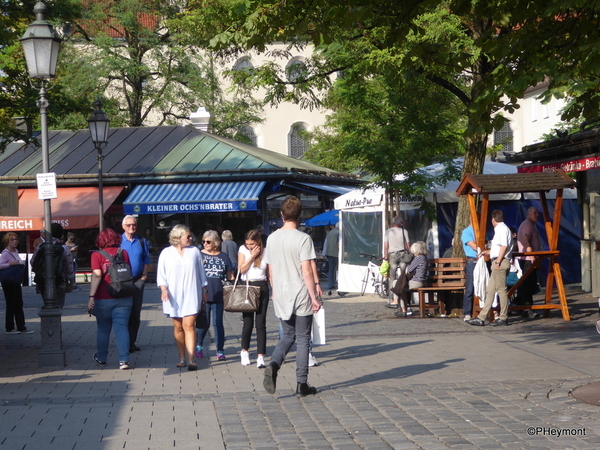
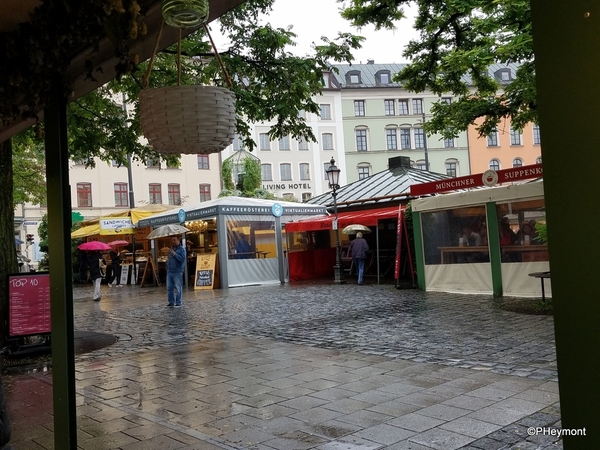
Even a rainy day can't completely dampen the market's spirit...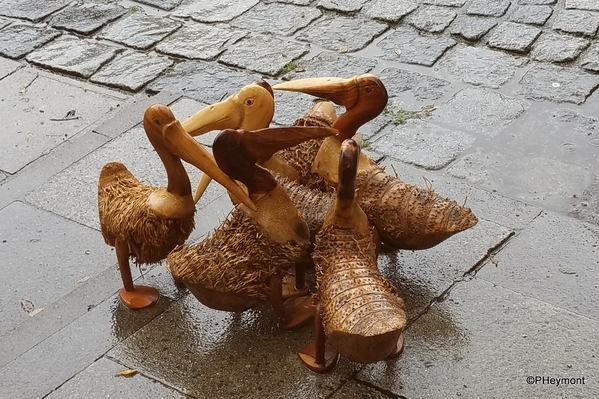
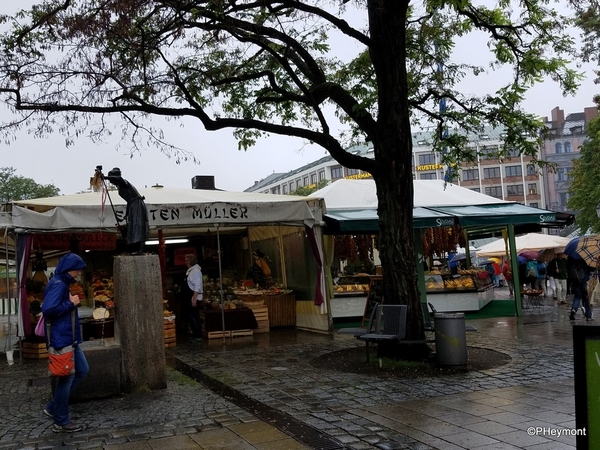
But that's not its original home. For centuries, the big square in front of the City Hall, or Rathaus, was the market square, now known as Marienplatz. In 1807, when it had grown too crowded to function, and also took up too much of the square, King Maximillian I ordered city officials to tear down buildings on the market's current spot to create a new marketplace.
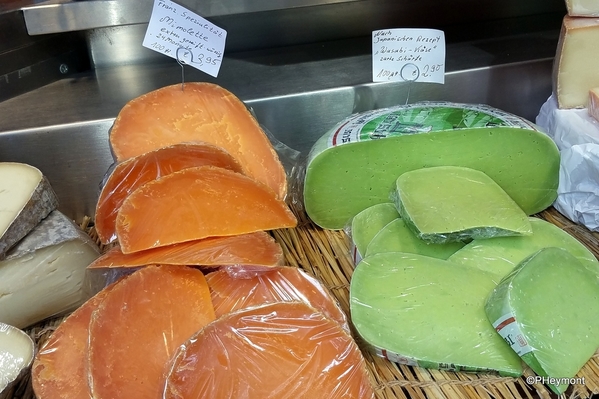
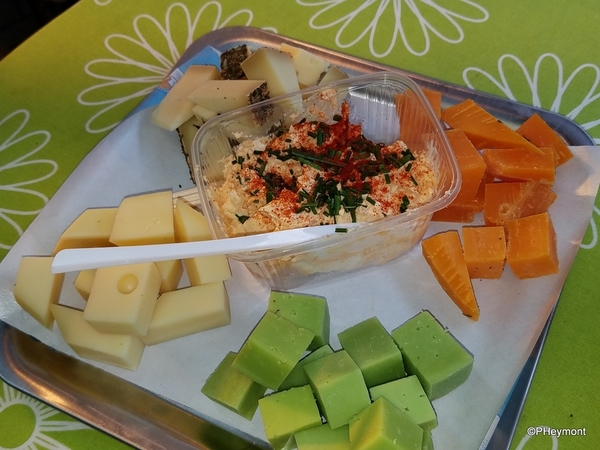
Colorful cheeses from one of the many cheese vendors in the market.
It would be hard to do that today: many of the buildings, including the Holy Ghost hospice, were centuries old themselves. The Holy Ghost church, though, was spared.
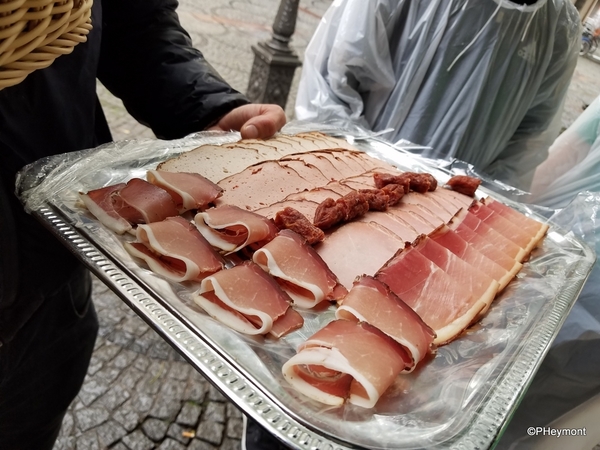
A sampling of delicious cold cuts. Most of the butcher shops are along this outer area of the market, just below St Peter's Church.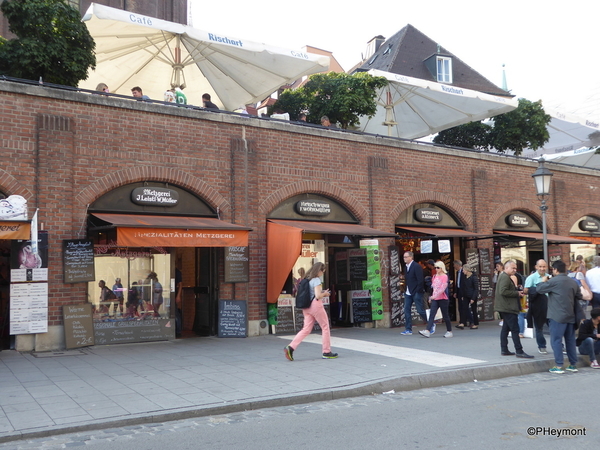
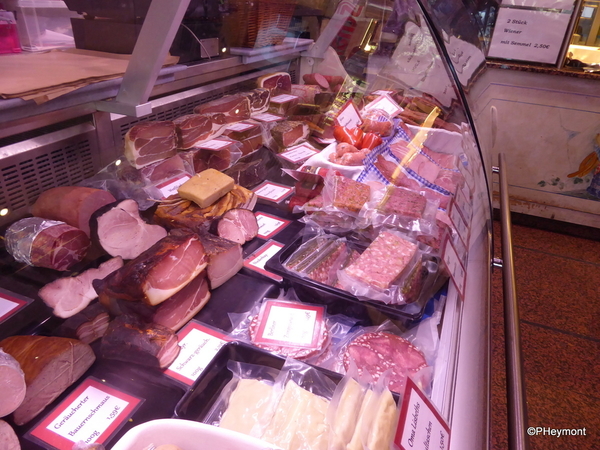
Over the years, the market spread out of its original space, adding butcher shops across the street and more. In 1852, a Great Market Hall, called the Schrannenhalle, was built at one end. Today, it's at but not part of the market; abandoned after a 1932 fire, it re-opened in 2012 as a branch of Eataly.
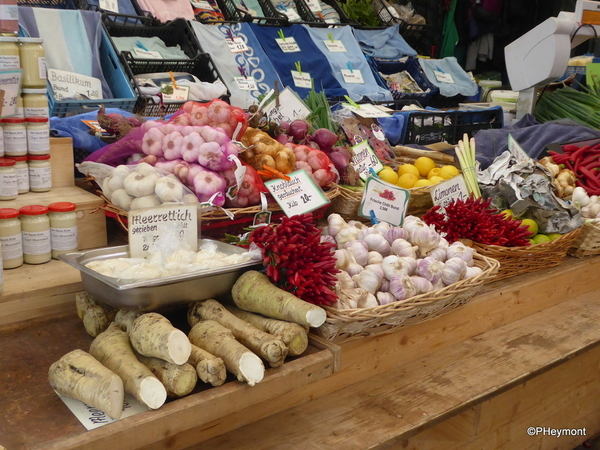
Plenty of roots, herbs and gourds were on display in early September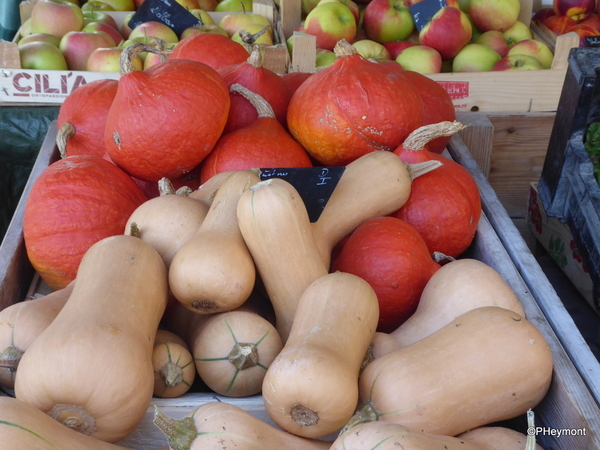
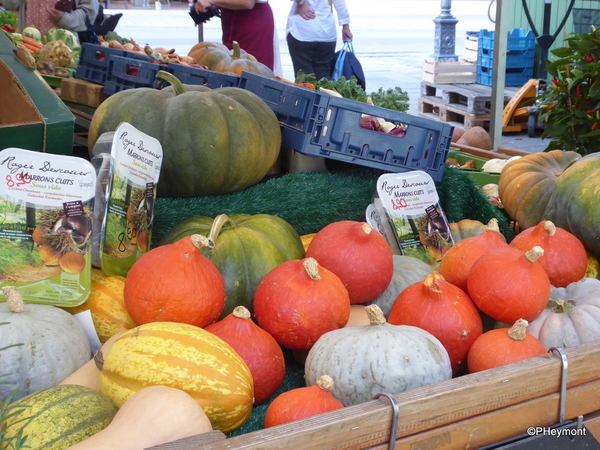
And the unusual, and wonderful peach, called here the Wine Hill Peach, that is grown at the ends of rows in vineyards. It's a sort of coal-mine canary: Its growth is affected early by powdery mildew. When mildew appears on the peaches, it's time to treat the grapes to protect them.
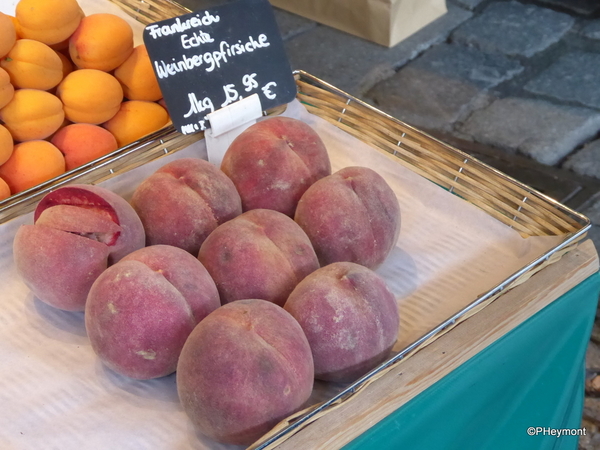
In the beginning, the Viktualienmarkt was the main central market, serving not only individuals, but stores and distributors as well; as in most modern cities, that part of the market has been moved away from the center, although the Viktualienmarkt is still run by the same quasi-official city agency.
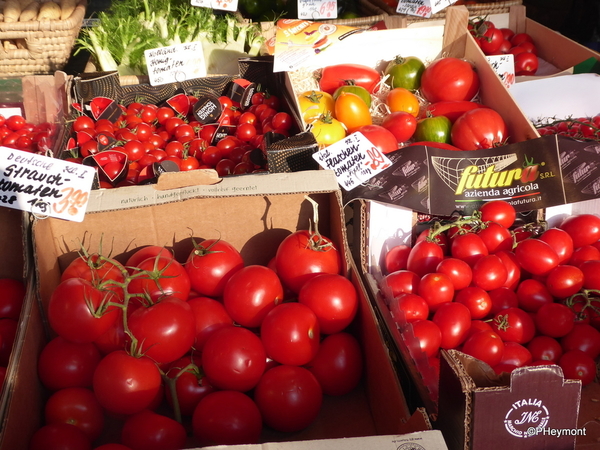
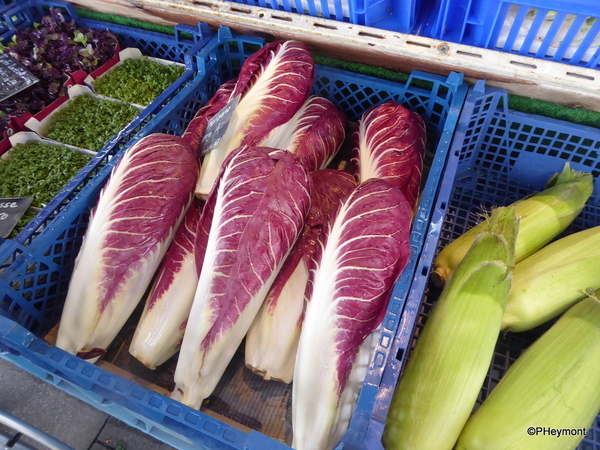
The hours tell you the difference: the newer wholesale market opens at 5 am and closes by 1 pm, while the Viktualienmarkt is open 8 am to 8 pm, and the market still has plenty of customers well into the evening, especially at the beer garden at its center.
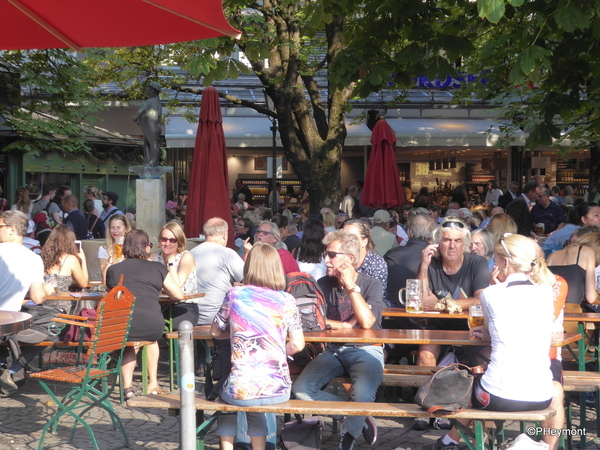
The beer garden, by the way, is one of the city's youngest: it was only created in 1970. But it already has an interesting tradition of its own: the beer available changes about every 5 to 6 weeks, among the traditional local breweries: Augustiner, Paulaner, Späten, Hacker-Pschorr, Hofbräu and Löwenbräu.
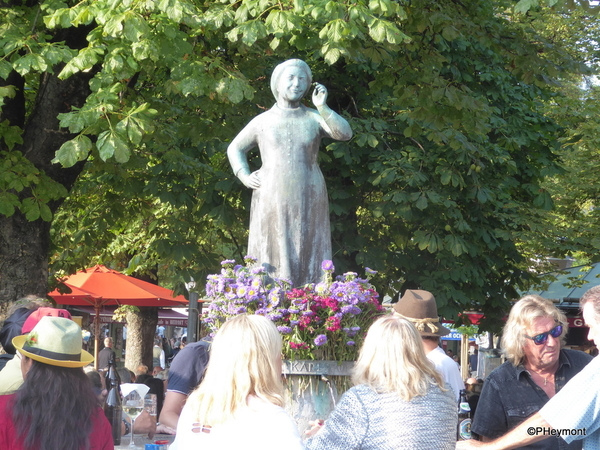
Munich beer gardens usually serve beer from only one brewery, but since this one is at the center of the city, popular with tourists and locals as well, all the breweries wanted it. In a compromise, each of the seven traditional Munich breweries gets a turn.
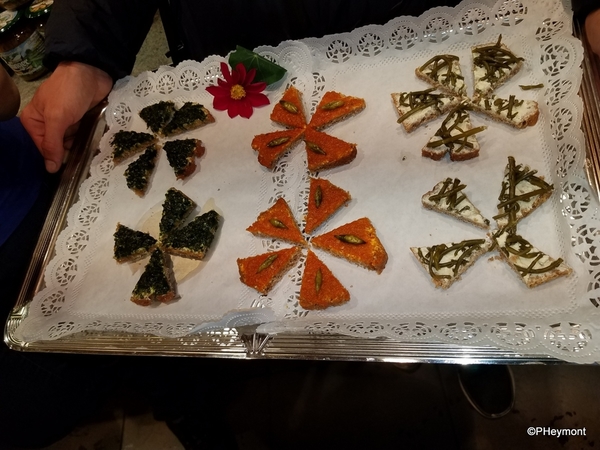
Unusual hors d'oeuvres and a wide variety of preserves and other products at a 'bio' food stall, whose owner can't wait to tell you all about them.

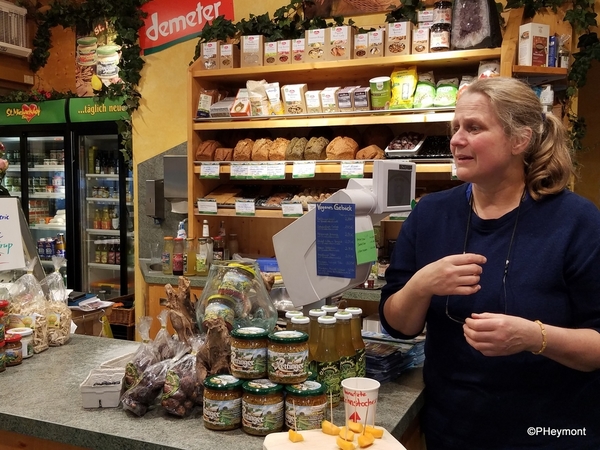
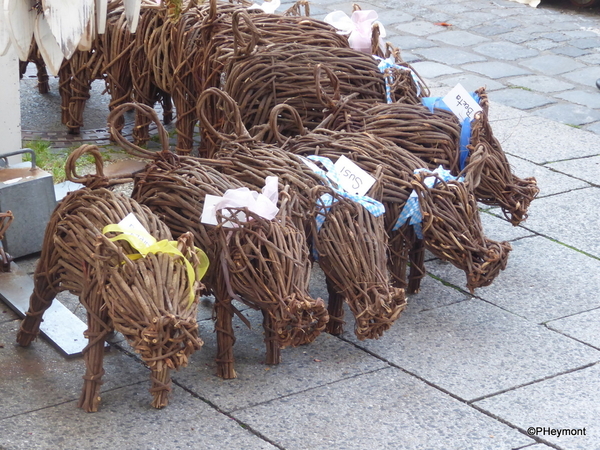
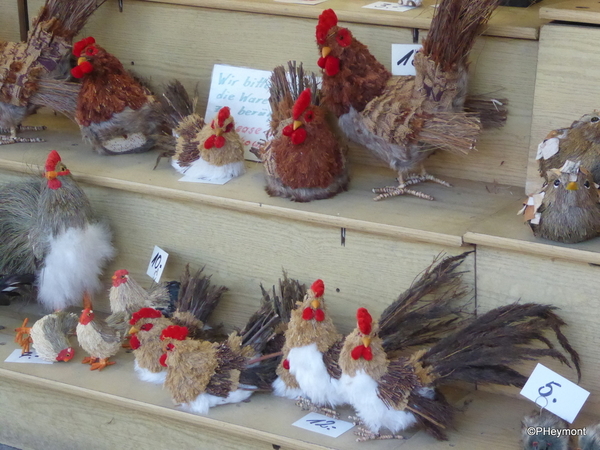
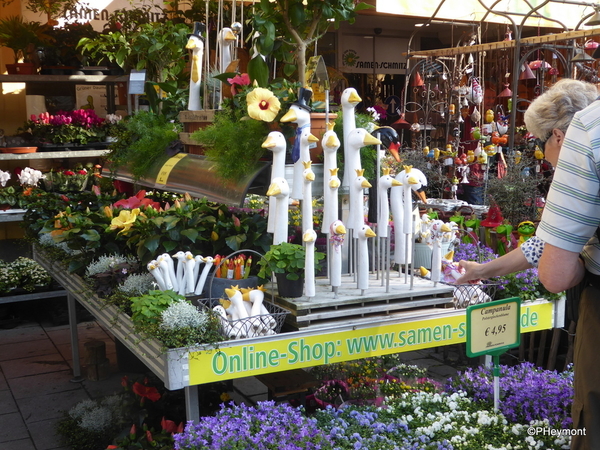
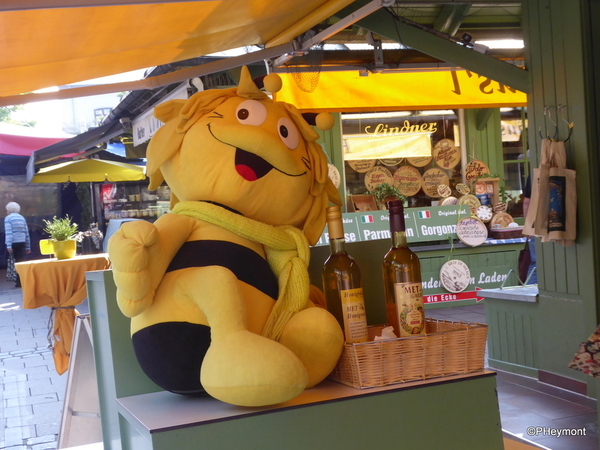
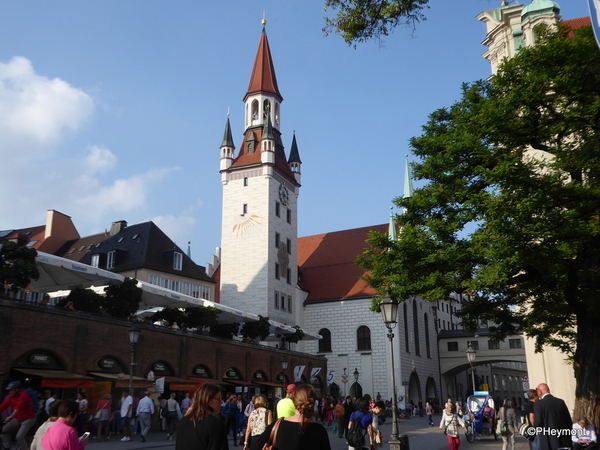 The city's Old Town Hall, which fronts on Marienplatz, is a background for the market. Instead of a clock, the tower has its original sundial.
The city's Old Town Hall, which fronts on Marienplatz, is a background for the market. Instead of a clock, the tower has its original sundial.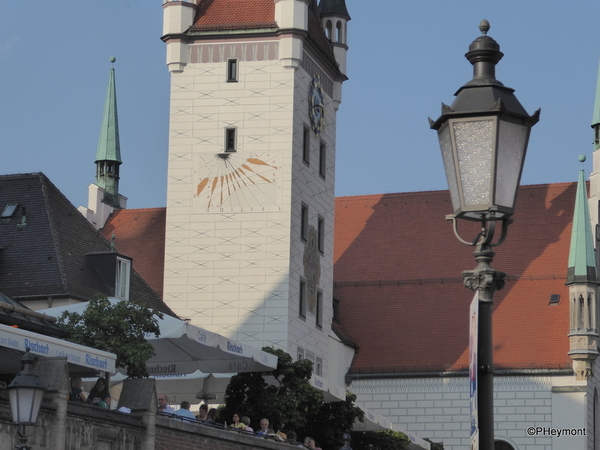
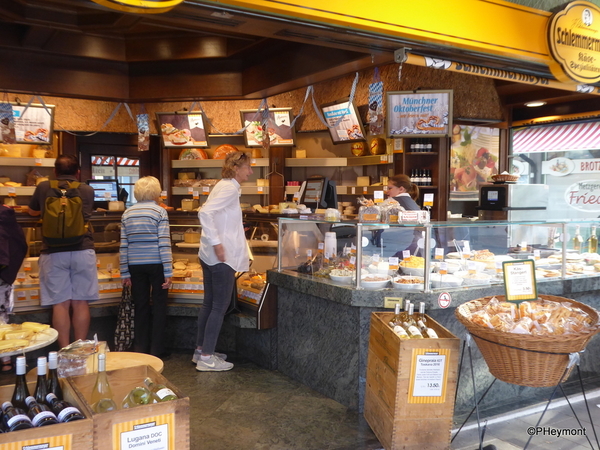
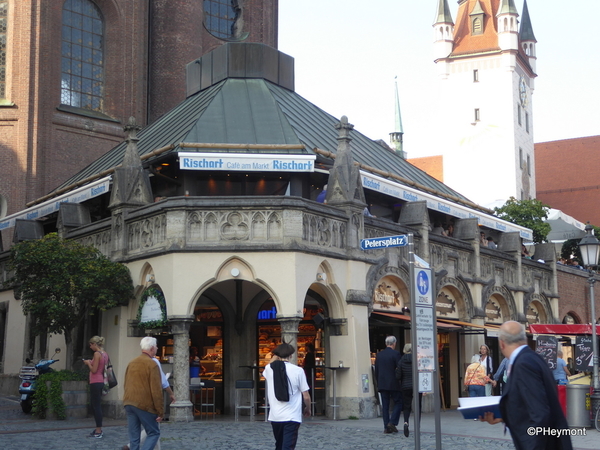




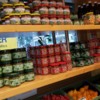























Comments (0)